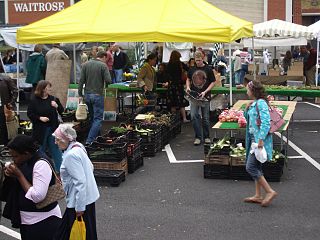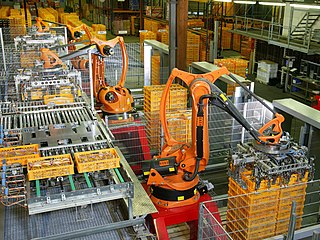
Nature conservation is the moral philosophy and conservation movement focused on protecting species from extinction, maintaining and restoring habitats, enhancing ecosystem services, and protecting biological diversity. A range of values underlie conservation, which can be guided by biocentrism, anthropocentrism, ecocentrism, and sentientism, environmental ideologies that inform ecocultural practices and identities. There has recently been a movement towards evidence-based conservation which calls for greater use of scientific evidence to improve the effectiveness of conservation efforts. As of 2018 15% of land and 7.3% of the oceans were protected. Many environmentalists set a target of protecting 30% of land and marine territory by 2030. In 2021, 16.64% of land and 7.9% of the oceans were protected. The 2022 IPCC report on climate impacts and adaptation, underlines the need to conserve 30% to 50% of the Earth's land, freshwater and ocean areas – echoing the 30% goal of the U.N.'s Convention on Biodiversity. Ultimately, these movements should be further promoted to encourage biodiversity and to conserve a functional ecosystem.

Slow Food is an organization that promotes local food and traditional cooking. It was founded by Carlo Petrini in Italy in 1986 and has since spread worldwide. Promoted as an alternative to fast food, it strives to preserve traditional and regional cuisine and encourages farming of plants, seeds, and livestock characteristic of the local ecosystem. It promotes local small businesses and sustainable foods. It also focuses on food quality, rather than quantity. It was the first established part of the broader slow movement. It speaks out against overproduction and food waste. It sees globalization as a process in which small and local farmers and food producers should be simultaneously protected from and included in the global food system.
The following outline is provided as an overview of and topical guide to sustainable agriculture:
Agroecology is an academic discipline that studies ecological processes applied to agricultural production systems. Bringing ecological principles to bear can suggest new management approaches in agroecosystems. The term can refer to a science, a movement, or an agricultural practice. Agroecologists study a variety of agroecosystems. The field of agroecology is not associated with any one particular method of farming, whether it be organic, regenerative, integrated, or industrial, intensive or extensive, although some use the name specifically for alternative agriculture.

Local food is food that is produced within a short distance of where it is consumed, often accompanied by a social structure and supply chain different from the large-scale supermarket system.
A green economy is an economy that aims at reducing environmental risks and ecological scarcities, and that aims for sustainable development without degrading the environment. It is closely related with ecological economics, but has a more politically applied focus. The 2011 UNEP Green Economy Report argues "that to be green, an economy must not only be efficient, but also fair. Fairness implies recognizing global and country level equity dimensions, particularly in assuring a Just Transition to an economy that is low-carbon, resource efficient, and socially inclusive."

Food engineering is a scientific, academic, and professional field that interprets and applies principles of engineering, science, and mathematics to food manufacturing and operations, including the processing, production, handling, storage, conservation, control, packaging and distribution of food products. Given its reliance on food science and broader engineering disciplines such as electrical, mechanical, civil, chemical, industrial and agricultural engineering, food engineering is considered a multidisciplinary and narrow field.

The slow movement advocates a cultural shift towards slowing down life's pace. It began with Carlo Petrini's protest against the opening of a McDonald's restaurant in Piazza di Spagna, Rome, in 1986 that sparked the creation of the slow food movement. Over time, this developed into a subculture in other areas, like the Cittaslow organisation for "slow cities". The "slow" epithet has subsequently been applied to a variety of activities and aspects of culture.

The University of Gastronomic Sciences (UNISG) is an international university located in northern Italy. The campus is in Pollenzo, near Bra, a city in the north-west region of Piedmont. Carlo Petrini, founder of the Slow Food Movement, established the university to focus on gastronomic sciences and the organic relationships between food, ecology, and cultures. More than 2,500 students have taken courses at UNISG since it opened in 2004. UNISG offers a variety of courses leading to undergraduate and graduate degrees in areas related to gastronomic sciences, food cultures and heritage, food ecologies, and food communications and management. As part of their curriculum, students every year are engaged in a number of field study trips in Italy and also in other European and extra-European countries.

Carlo Petrini is an Italian activist and author and founder of the International Slow Food Movement.

Sustainable fashion is a term describing products, processes, activities, and people that aim to achieve a carbon-neutral fashion industry built on equality, social justice, animal welfare, and ecological integrity. Sustainable fashion concerns more than fashion textiles or products, rather addressing the entire process in which clothing is produced, consumed and disposed of. The movement looks to combat the large carbon footprint that the fast fashion industry has created by reducing the environmental impact such as air pollution, water pollution and climate change.

A sustainable food system is a type of food system that provides healthy food to people and creates sustainable environmental, economic, and social systems that surround food. Sustainable food systems start with the development of sustainable agricultural practices, development of more sustainable food distribution systems, creation of sustainable diets, and reduction of food waste throughout the system. Sustainable food systems have been argued to be central to many or all 17 Sustainable Development Goals.
Sustainable diets are "dietary patterns that promote all dimensions of individuals’ health and wellbeing; have low environmental pressure and impact; are accessible, affordable, safe and equitable; and are culturally acceptable". These diets are nutritious, eco-friendly, economically sustainable, and accessible to people of various socioeconomic backgrounds. Sustainable diets attempt to address nutrient deficiencies and excesses, while accounting for ecological phenomena such as climate change, loss of biodiversity and land degradation. These diets are comparable to the climatarian diet, with the added domains of economic sustainability and accessiblity.
Sustainable consumption is the use of products and services in ways that minimize impacts on the environment in order for human needs to be met in the present but also for future generations. Sustainable consumption is often paralleled with sustainable production; consumption refers to use and disposal not just by individuals and households, but also by governments, businesses, and other organizations. Sustainable consumption is closely related to sustainable production and sustainable lifestyles. "A sustainable lifestyle minimizes ecological impacts while enabling a flourishing life for individuals, households, communities, and beyond. It is the product of individual and collective decisions about aspirations and about satisfying needs and adopting practices, which are in turn conditioned, facilitated, and constrained by societal norms, political institutions, public policies, infrastructures, markets, and culture."

Sustainability is a social goal about the ability of people to co-exist on Earth over a long time. Specific definitions of this term are difficult to agree on. They have varied with literature, context, and time. Experts often describe sustainability as having three dimensions. These are environmental, economic, and social. Many publications state that the environmental dimension is the most important. So in everyday use, sustainability often focuses on countering major environmental problems. These include climate change and loss of biodiversity. They also include loss of ecosystem services, land degradation, and air and water pollution. The idea of sustainability can guide decisions at the global, national, and individual levels. A related concept is sustainable development, and the terms are often used to mean the same thing. UNESCO distinguishes the two like this: "Sustainability is often thought of as a long-term goal, while sustainable development refers to the many processes and pathways to achieve it."
The term food system describes the interconnected systems and processes that influence nutrition, food, health, community development, and agriculture. A food system includes all processes and infrastructure involved in feeding a population: growing, harvesting, processing, packaging, transporting, marketing, consumption, distribution, and disposal of food and food-related items. It also includes the inputs needed and outputs generated at each of these steps. Food systems fall within agri-food systems, which encompass the entire range of actors and their interlinked value-adding activities in the primary production of food and non-food agricultural products, as well as in food storage, aggregation, post-harvest handling, transportation, processing, distribution, marketing, disposal, and consumption. A food system operates within and is influenced by social, political, economic, technological and environmental contexts. It also requires human resources that provide labor, research and education. Food systems are either conventional or alternative according to their model of food lifespan from origin to plate. Food systems are dependent on a multitude of ecosystem services. For example, natural pest regulations, microorganisms providing nitrogen-fixation, and pollinators.
An alternative purchase network (APN) is a contemporary commerce channel established as an alternative to perceived consumerism, and the cultural and economic hegemony of the global market. Alternative purchase networks aim to promote ethical shopping behaviour, which has an environmentally-friendly approach and considers local realities.
Critical consumption is the conscious choice to buy or not buy a product because of ethical and political beliefs. The critical consumer considers characteristics of the product and its realization, such as environmental sustainability and respect of workers’ rights. Critical consumers take responsibility for the environmental, social, and political effects of their choices. The critical consumer sympathizes with certain social movement goals and contributes towards them by modifying their consumption behavior.
Organic food culture refers to a recent social and cultural trend in which there has been an increased interest in organic food due to the rise of media coverage on health, food safety, and environmental dangers of pesticides. This attitude considers food a central requirement for health, but it does not neglect the aesthetic or hedonistic (pleasurable) aspects of food consumption.

Slow fashion is an aspect of sustainable fashion and a concept describing the opposite to fast fashion, part of the "slow movement" advocating for clothing and apparel manufacturing in respect to people, environment and animals. As such, contrary to the industrial practices of fast fashion conglomerates, slow fashion involves local artisans and the use of eco-friendly materials, with the goal of preserving crafts and the environment which, ultimately, provides value to all, slow fashion brands, consumers and retailers.











